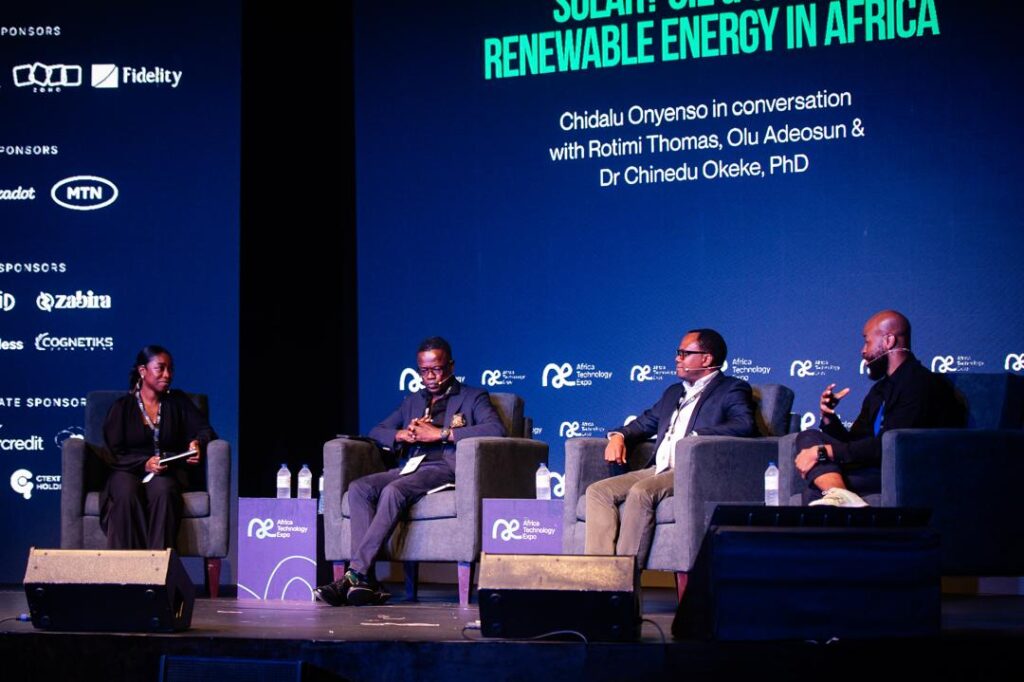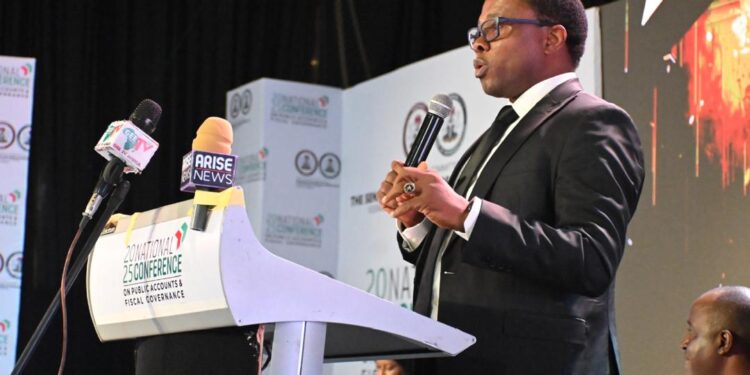The National Conference on Public Accounts and Fiscal Governance 2025, organized by the Public Accounts Committee (PAC) of the House of Representatives, convened over 1,000 high-level government officials, auditors, finance commissioners, civil society representatives, and industry experts at the Transcorp Hilton, Abuja, from July 6 to 10. With the theme “Fiscal Governance in Nigeria: Charting a New Course for Transparency and Sustainable Development,” the conference underscored the urgent need to strengthen fiscal governance frameworks and promote integrity in public financial management.

A central highlight was the participation of Dr. Chinedu Okeke, a Sustainable Energy and Financial Management Systems Consultant, who facilitated a technical workshop on “Government Integrated Financial Management Information Systems (IFMIS): Federal and State Adaptation.” His involvement emphasized the pivotal role of technology-driven solutions in advancing financial transparency and accountability across Nigeria’s governance structures.
The conference was designed to tackle inefficiencies and opacity in Nigeria’s public financial management system while aligning with the 10th National Assembly’s Legislative Agenda. Discussions focused on increasing accountability and transparency, promoting the use of computerized financial management systems such as IPPIS, GIFMIS, and IFMIS, and equipping stakeholders with strategies for effective fiscal governance. Participants also emphasized the importance of inclusive engagement, uniting the public, private, and civil society sectors to jointly develop sustainable solutions.
Several key milestones emerged from the event. Dr. Okeke’s workshop showcased IFMIS as a transformative tool for harmonizing financial reporting, minimizing leakages, and improving oversight at both federal and state levels. Delegates recommended the deployment of advanced technologies such as blockchain to strengthen audit trails and data analytics for fraud detection, aligning Nigeria’s fiscal systems with global best practices. The conference concluded with a strong commitment from the nation’s leadership to modernize fiscal frameworks, integrate real-time reporting systems, and strengthen fiduciary oversight. By promoting digitized platforms for expenditure tracking, the conference also reinforced government’s pledge to openness and renewed public trust in Nigeria’s financial systems.
The outcomes of the conference laid the foundation for Nigeria’s transition into a digitally enabled fiscal governance ecosystem. Looking forward, expectations include the nationwide institutionalization of IFMIS to ensure consistency and transparency across ministries and states, greater public confidence in financial reporting to improve Nigeria’s creditworthiness in global markets, and the expansion of future conferences to address emerging areas such as climate finance and socially responsible budgeting. Stronger collaboration between the legislature, civil society, and the private sector will also be key in refining governance strategies over time.
For Nigeria, the significance of the conference extends well beyond dialogue, serving as a catalyst for strengthening the foundations of macroeconomic stability and sustainable development. It demonstrated clear national priorities: combatting corruption by closing loopholes that enable misuse of funds, ensuring efficient allocation of resources to critical sectors such as infrastructure, education, and healthcare, and enhancing Nigeria’s ability to attract investment by demonstrating fiscal discipline and integrity.
Dr. Okeke’s contribution was particularly impactful, as his expertise highlighted the importance of integrating digital platforms into Nigeria’s fiscal ecosystem. His vision for a transparent, accountable, and technology-driven governance framework aligns squarely with the nation’s development goals. The National Conference on Public Accounts and Fiscal Governance 2025 therefore marked a defining step toward transforming Nigeria’s fiscal management landscape. By addressing inefficiencies, promoting digitization, and fostering a broad commitment to transparency, the event provided a framework for cleaner and more accountable governance. With leaders like Dr. Chinedu Okeke driving technical innovation and reform, Nigeria is better positioned to chart a new course toward fiscal transparency, institutional integrity, and sustainable development.
























